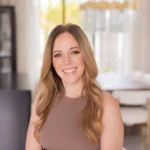
I may be about to say something that sounds a bit… controversial to you, but here it goes! 12 week myo programs are cookie cutter. So what? What does that mean for YOU??
Do you know what cookie cutters are great at? Creating the same exact thing over and over again…which is great if you or your child do not have any unique qualities or differences… it’s definitely not a great thing if you would like a program tailored to you or your child’s unique needs and deficits.
Why would you want a program tailored to YOUR needs?
You might find that a cookie cutter program targets muscles and movements that YOU don’t have struggles in, skipping techniques that you could benefit from, introducing exercises that could harm or cause more issues for you, glossing over areas that you need to target in order to master myo, just to name a few problems!
It would be awful to get to the end of a cookie cutter myo program and have made little to no progress and/or the symptoms that bother you THE MOST haven’t even been addressed! This is WHY we are raising awareness to this issue!
Other factors to take into account before investing into ANY myo program are the source of the program and their licensure/training, who can and should be treating you or your child…
Let’s discuss.
First thing to note is that orofacial myofunctional therapy is for a child who can function at a 4 year old age, cognitively. This means the child can follow the directions of a 4 year old, which is necessary for success with traditional myofunctional therapy. Under that age, a child will need sensori-oral motor feeding therapy, which includes the goals of myo but is a very different approach and requires licensure by a feeding therapist. Keep reading for further clarification.
Infants (birth to 12 months), toddlers (12-36 months) and preschoolers (3-5 years) can only be treated by licensed professionals for their SCOPE. Who has this within their scope of practice?
IBCLC treats breastfeeding in infants, toddlers and preschoolers (until they wean) but not bottles, oral exercises (beyond suck training), and certainly not transition to solids or “myofunctional therapy” unless the IBCLC has additional credentials/licensure.
FEEDING THERAPIST is a term reserved for FEEDING THERAPISTS which is all encompassing and for licensed Occupational Therapists (OTs), Speech-Language Pathologists (SLPs), and some Physical Therapists (PTs). These professionals can treat across the lifespan and have 6+ years of schooling, clinical hour requirements and exams (plus other requirements to get a license) and countless hours of continuing education in feeding disorders. Your infants safety and progress is our primary concern.
SWALLOWING – an SLP is the only professional who has swallowing within their scope of practice and requires a license to practice. This is NOT a certification program (although those do exists following and in addition to licensure), but one learned through many years of schooling, rigorous clinicals, and continuing education once out in the field. SLPs can treat swallowing across the lifespan.
Myofunctional Therapy – A Myofunctional Therapist
A myofunctional therapist can be an SLP, OT, PT, Registered Dental Hygienist or RDH, or Dentist who has sought out additional training in orofacial myofunctional disorders. They must also have licensure in one of the following professions: SLP, OT, PT, RDH, DDS. While an SLP, OT or PT can treat across the lifespan an RDH or Dentist can treat myo on age 4 (cognitively) through adult. While an RDH or Dentist can provide education on infants and toddlers, they do not have a license to perform feeding therapy which is required for “myo” patientes under an age of 4 years (cognitively).
***Completing a course or certification does not outweigh the legal requirement to obtain and maintain the proper licensure as a medical professional. Please be aware of who you are working with and if they have the proper license to assess, diagnose and treat. Unfortunately, there are many providers calling themselves feeding therapists and/or myofunctional therapists, who are not properly licensed to do so.
Whew! Did you make it this far? Please know our heart is for you and your child’s best interest, that your money is well spent with a therapist who is highly skilled, trained, and able to develop a specialized plan specific to the needs of the patient they are treating.
Our goal? To empower parents/patients to take the reins and feel equipped when choosing the right professionals for yourself or your child.




